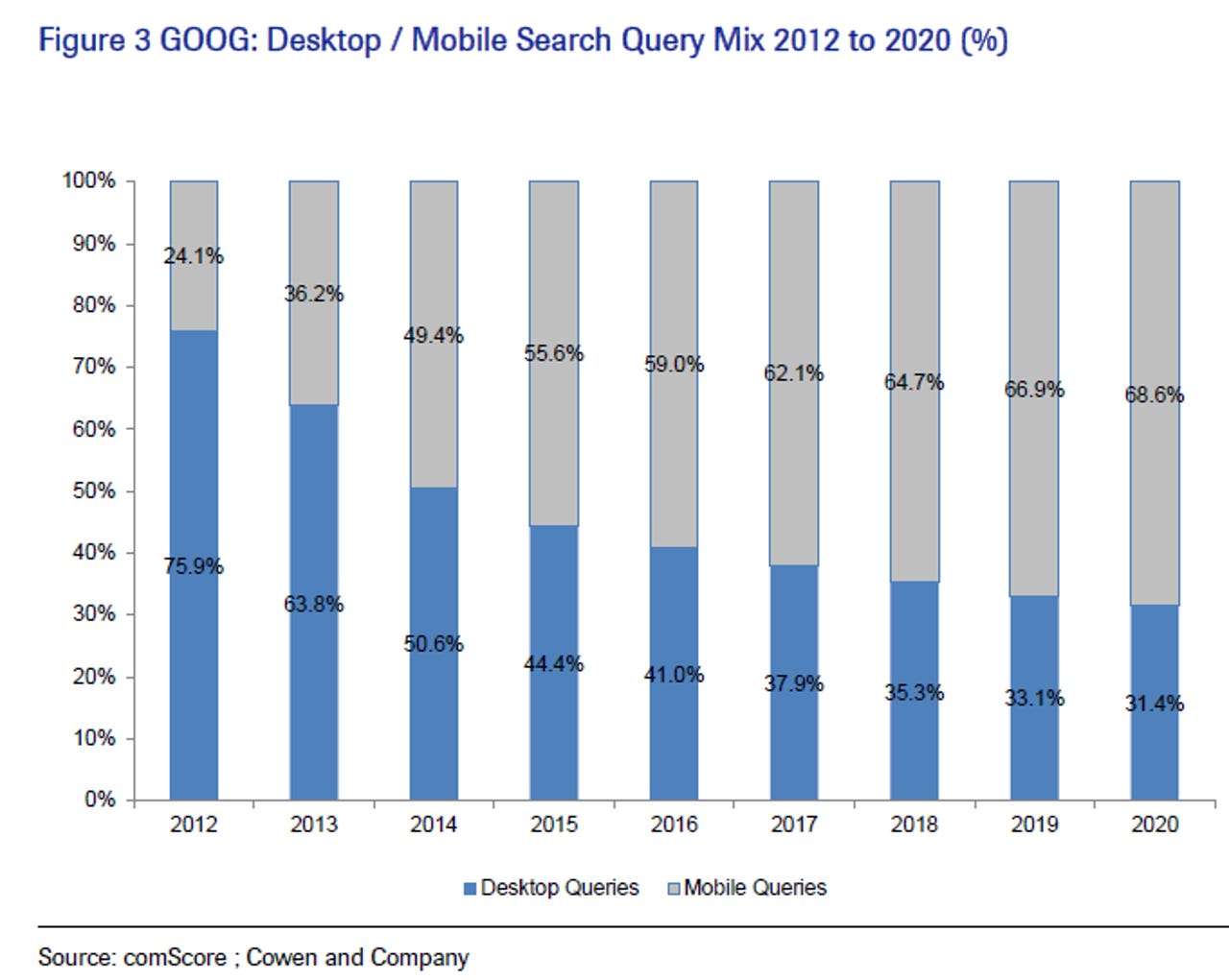Google's mobile friendly algorithm change on deck: The case for blowback

Google next week will roll out what could be its one of its biggest algorithm changes in years as it uses a site's "mobile friendliness" as a ranking signal. The problem: 67 percent of Fortune 100 companies are not mobile friendly, according to research firm SumAll.
Another problem: These companies are likely to see their traffic take a hit starting April 21.
And another problem: If the big companies with real budgets aren't prepared given Google's 7-week heads up just think how non-compliant small and mid-sized businesses are going to be. In either case, Google's mobile friendly site screener has been getting a workout.
The big question is whether this algorithm change turns out to be a problem for Google, which will dramatically change its search results.
On the surface, Google's algorithm change, dubbed mobilegeddon by some folks and outlined at the end of February, is quite rational. Mobile traffic has surged for most site and many sites aren't geared to the small screen. Meanwhile, Google doesn't get the clicks---or ad rates---on mobile that it does on desktop.
Given more traffic is mobile, it only makes sense that the search results would favor the small screen.

Here's the catch: If you read between the lines here, Google has roughly three reasons to make its mobile friendly algorithm change.
- Google has to close the gap between the ad rates on desktop and mobile especially since traffic is headed to the small screen.
- The search giant is making a bet that mobile friendly results and Web sites that will render well on smaller screens will change consumer behavior. On the desktop, Google gets more clicks than on mobile, a venue that's means more scanning than action.
- Google needs to surface content in apps better so it can index that data.
Those reasons make fine business sense, but there are risks. If most businesses aren't ready to be mobile friendly Google's results won't be as worthwhile to the user. Perhaps the content from mobile friendly sites just isn't on par with what you'd get from a company that hasn't complied yet.
What's to keep a company shunned by Google from working Yahoo or Bing for search? What's to keep that company that may take six months to have a mobile responsive design from moving their ad spend to Facebook?
Also see: As Europe dangles $6bn fine, Google says it's getting slaughtered in shopping | EU's three gripes with Android: What you need to know | Europe slugs Google with antitrust charges and opens Android probe
Consumers aren't going to know the difference necessarily, but Google's algorithm change is likely to annoy a lot of large customers who happen to be wishing for an alternative given the search giant's power as gatekeeper.
I'd argue that Google's ability to shift user behavior is limited with the mobile-friendly algorithm change. Why? Behavior on a small screen is more about scanning than hard core research. You find what you need and go. Google is unlikely to see the returns on mobile that it does on desktop no matter what it does with its search results.
And given that ads fund everything at Google---robot experiments, hardware efforts and a bevy of new businesses---this algorithm change could have some blowback.
Either way, the mobilegeddon algorithm change should be interesting to watch. While Google can move an industry, this latest algorithm swap could highlight risks to the company too.